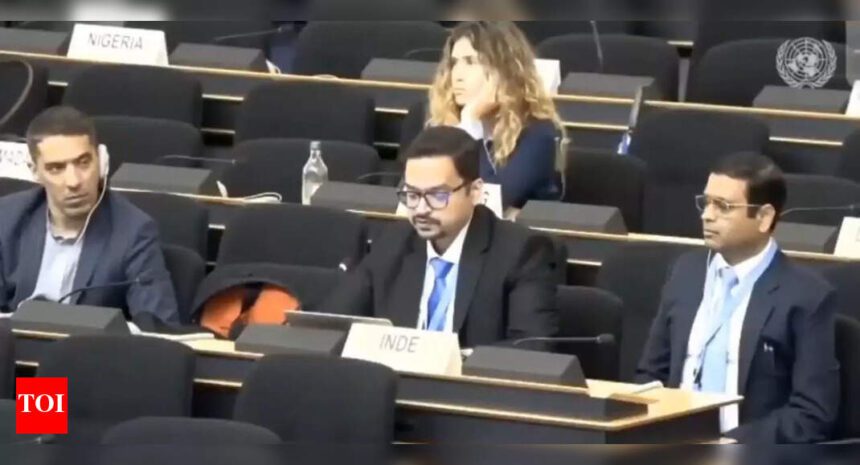India has strongly criticized Pakistan during the 60th session of the United Nations Human Rights Council (UNHRC) in Geneva, accusing Islamabad of utilizing the forum to make unfounded and incendiary statements against India. Kshitij Tyagi, Counsellor at the Permanent Mission of India to the UN, highlighted the need for Pakistan to redirect its focus towards addressing its own challenges, including a faltering economy, military-dominated governance, and a troubling human rights record marked by persecution.
Tyagi stated, “A delegation that epitomizes the antithesis of this approach continues to abuse this forum with baseless and provocative statements against India.” He urged Pakistan to relinquish the Indian territory it occupies illegally and attend to its internal issues, rather than pursuing aggressive rhetoric. He further remarked, “Perhaps once they find time away from exporting terrorism, harboring UN-proscribed terrorists, and bombing their own people.”
Amid reports of at least 30 fatalities due to a recent airstrike in a village in Khyber Pakhtunkhwa, Tyagi reiterated India’s commitment to ensuring that the UNHRC remains universal, objective, and non-selective in its efforts. He emphasized the importance of collaborative efforts to promote unity and constructive engagement, rather than division.
Expressing concerns over the proliferation of country-specific mandates within the council, Tyagi noted, “Far from advancing the Council’s core mandate, they reinforce perceptions of bias and selectivity. Focusing narrowly on the human rights situation in a few countries distracts us from the urgent and shared challenges the world faces.” He asserted that meaningful progress can only be achieved through dialogue, cooperation, and capacity-building, always with the consent of the state concerned.
As the world grapples with multiple crises, he underscored the need for the council’s work to be directed towards building consensus through a non-politicized and proactive approach.










